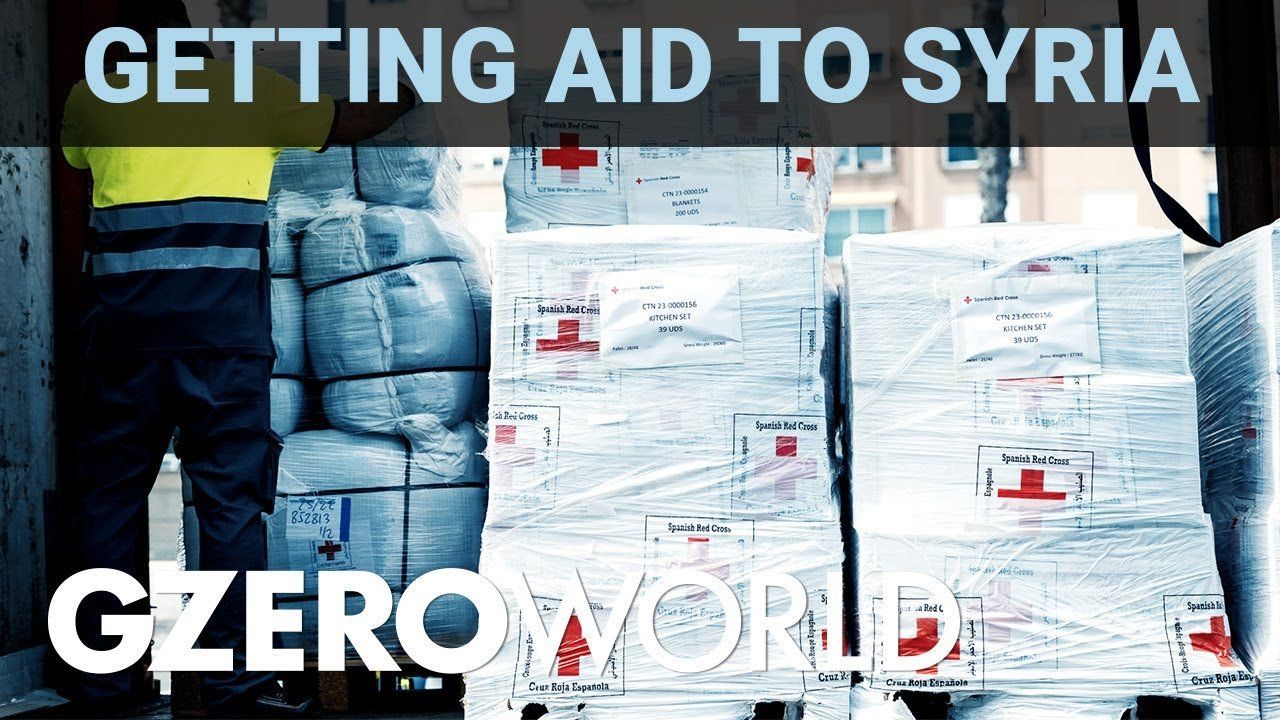
The two devastating earthquakes that hit Turkey near the Syrian border on February 6 have exacerbated the already-difficult challenge of getting humanitarian aid into a region plagued by conflict and political instability. In an interview with Ian Bremmer on GZERO World, President and CEO of the International Rescue Committee, David Miliband, explains how aid delivery remains a challenge in northwest Syria, which is controlled by armed opposition group.
Although two new cross-border points opened after the earthquake, the IRC hasn't seen an increase in aid flows.“It's still very tough to get aid across the border," says Miliband. Humanitarian assistance for northwest Syria needs to travel across the border with Turkey because aid sent directly to Damascus stays with President Bashar al-Assad's government. Miliband notes that the situation was already dire in the region before the earthquakes, and the disaster has only compounded the crisis in Syria, with a lack of adequate medical care, cholera outbreaks, and freezing temperatures posing major risks to the population.
The overall politics of the region, which is still recovering from the decade-long Syrian Civil War, also remain dire. Northwest Syria was a conflict zone as recently as January, and 150 civilians were killed last year in border skirmishes.
“If you live there, it's very hard for people to keep any hope at all,” says Miliband.